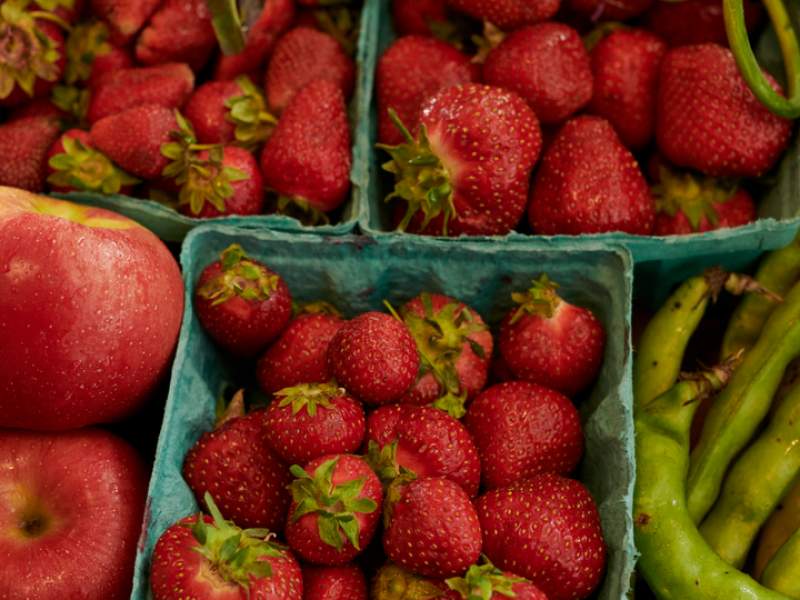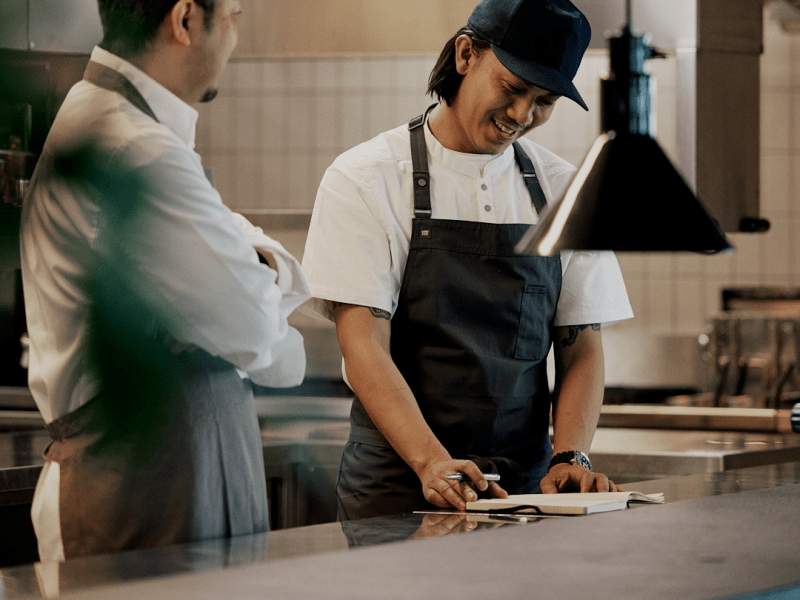Para reflexionar
Al entrar en una nueva estación, damos la bienvenida a una nueva cosecha de productos de temporada de invierno para encender nuevos sabores e inspiración en nuestros paladares y nuestros platos. Desde las frutas frescas de las manzanas, los arándanos, las peras y las castañas hasta un espectro de verduras coloreado por la calabaza, la remolacha, la col rizada, las coles de Bruselas y las alcachofas de Jerusalén, nos tomamos un momento para reforzar la importancia del localismo y la estacionalidad mirando a las cimas de las montañas de Corea para reflexionar sobre los valores definidos por la cocina del templo coreano.

Mucho antes de que Alice Waters diera el pistoletazo de salida al movimiento "slow food" de Estados Unidos, antes de que los chefs de Noma acapararan la atención por la comida recolectada, y mucho antes de que "de la granja a la mesa" y "locavore" se pusieran de moda y formaran parte del vocabulario del norteamericano medio, generaciones de maestros anónimos perfeccionaban las técnicas de fermentación, deshidratación y búsqueda de alimentos con una honestidad sin igual, en el silencioso refugio de los templos de toda Corea.
La cocina de los templos coreanos existe desde hace aproximadamente 1600 años, desde la fundación del templo Jinkwansa, y se basa en unos principios sencillos que all al concepto budista del desapego. all los ingredientes y comidas all y se elaboran con elegancia y abundancia para servir a la salud y consumirse en porciones adecuadas como fuente de claridad mental y física, un linaje de meditación. De los muchos budistas zen que practican este arte, nos fijamos en Jeong Kwan, una monja que reside en la ermita Chunjinam del templo Baekyangsa, a 272 km al sur de Seúl, que últimamente ha llamado la atención de algunos de los líderes internacionales más renombrados en gastronomía y ha sido comparada con chefs como Michel Bras y Alain Passard, Dan Marber y David Kinch, René Redzepi y otros similares.
Kwan cree que "la cocina definitiva -la que es mejor para nuestro cuerpo y más deliciosa para nuestro paladar- procede de esta conexión íntima con frutas y verduras, hierbas y judías, setas y cereales". En su opinión, no debe haber distancia entre un cocinero y sus ingredientes.
Tanto si lleva la generosidad del invierno a estados de ensaladas invernales o sopas calientes, le dejamos con las palabras profundamente sencillas de Jeong para que las lleve a su vida diaria y a sus comidas esta temporada, mientras practica la cocina local y de temporada:
"Deja que la naturaleza se encargue". - Jeong Kwan.












